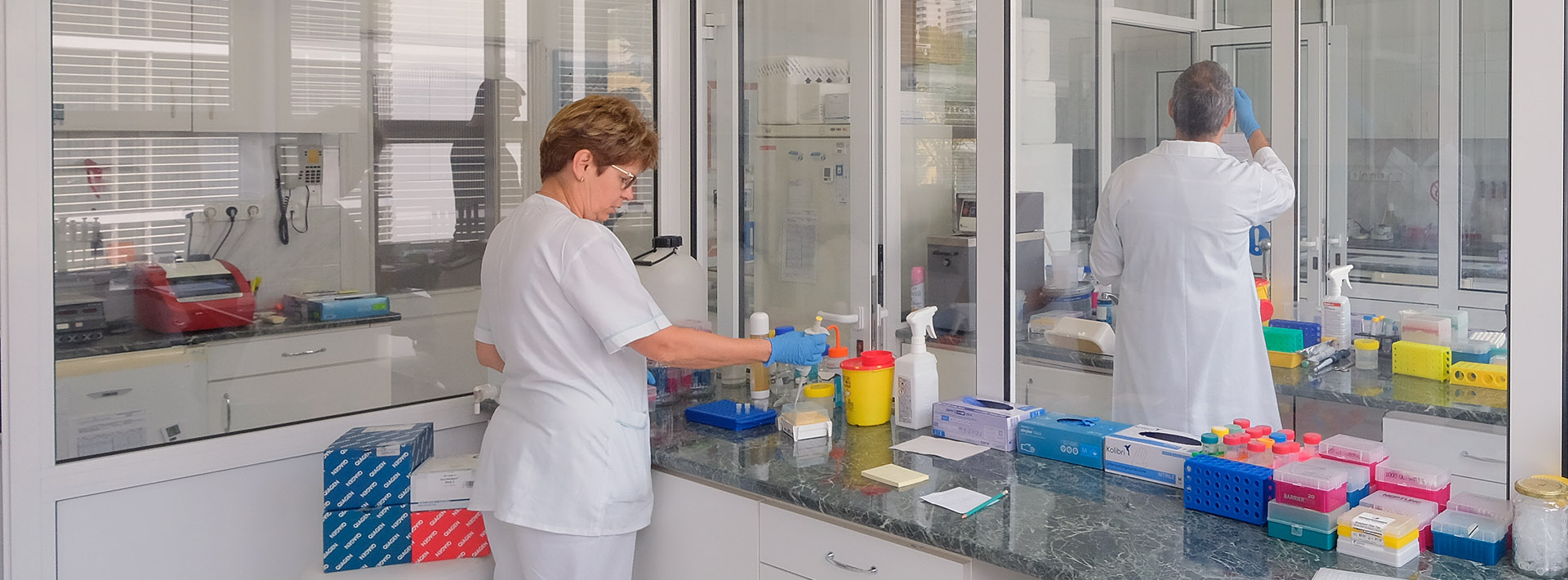Data
Official data in SubjectManager for the following academic year: 2020-2021
Course director
-
Dr. Viktor Soma POÓR
assistant professor,
Department of Forensic Medicine -
Number of hours/semester
lectures: 12 hours
practices: 12 hours
seminars: 0 hours
total of: 24 hours
Subject data
- Code of subject: OBF-BMF-T
- 2 kredit
- Biotechnology MSc
- Optional modul
- autumn
-
Course headcount limitations
min. 2 – max. 9
Topic
These days the importance of laboratory and molecular biology methods is obvious in the field of forensic medicine. These methods are used in the examination of different body fluids (blood, saliva, vaginal secretum). During the course we will discuss in details the methods used to analyze DNA (identifications, paternity testing): the significance of analyses of STRs, SNPs, and mitochodrial DNA. Besides the basic DNA methods we talk about new scientific approaches which are based on RNA and protein analyses (determination of course and time of death).
Lectures
- 1. Sample collection, DNA extraction, specialities in Forensic Science - Dr. Poór Viktor Soma
- 2. Forensic histology - Dr. Tóth Dénes
- 3. Biology of short tandem repeats - Dr. Poór Viktor Soma
- 4. The Chelex method - Fejes Vivien
- 5. Next generation DNA sequencing - Dr. Poór Viktor Soma
- 6. Identification of body fluids - Dr. Poór Viktor Soma
- 7. Kinship analysis - Dr. Poór Viktor Soma
- 8. Polymerase chain reaction - Dr. Poór Viktor Soma
- 9. Forensic autopsy - Dr. Tóth Dénes
- 10. Forensic applications of next generation sequencing - Dr. Poór Viktor Soma
- 11. Diagnosis of drowning - Jánosa-Szűcs Dominika
- 12. Examination - Dr. Poór Viktor Soma
Practices
- 1. DNA extraction
- 2. Forensic histology
- 3. Polymerase chain reaction
- 4. DNA extraction with Chelex
- 5. Analysis of genetic profiles
- 6. Analysis of genetic profiles
- 7. Identification of biological stains
- 8. Identification of biological stains
- 9. Forensic autopsy
- 10. Sequencing methods
- 11. Diatom testing
- 12. Consultation and exam
Seminars
Reading material
Obligatory literature
Literature developed by the Department
Notes
Recommended literature
Alan Gunn: Essential Forensic Biology,
Forensic DNA Typing, John M. Butler; Molecular Forensics, Ralph Rapley;
DNA: Forensic and Legal Applications Kobilinsky L.
Conditions for acceptance of the semester
Maximum of 25 % absence allowed
Mid-term exams
Written exam on the last practice
Making up for missed classes
Based on personal agreement
Exam topics/questions
Subjects of the exam are given out on the lectures
Examiners
Instructor / tutor of practices and seminars
- Dr. Poór Viktor Soma
- Dr. Tóth Dénes
- Fejes Vivien
- Jánosa-Szűcs Dominika
